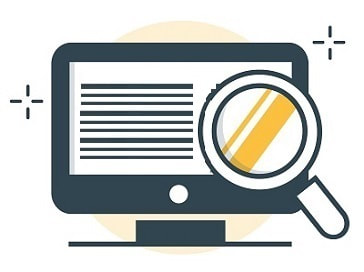Financial Planning for Children With Disabilities - The Definitive Guide for New Zealand Parents
Our guide is published to help you provide the best quality of life for your child and help create a safe, secure and independent future for your child.
Updated 16 February 2023
Summary:
To help you know plan your child's financial future, our guide covers:
- No one ever expects to have a child with a disability, so it can be difficult to understand where to start regarding financial planning. Parents of children with disabilities face many challenges, including increased medical expenses and long-term care requirements. Financial planning is critical to ensure that your child is cared for even after you're gone.
- This guide discusses some steps you need to take to prepare for your child's financial future. In addition, we discuss the top facts you need to know and frequently asked questions regarding children with disabilities.
- Important: This guide is split into "before 18 years of age" and "after 18 years of age" to distinguish between relevant information for children with disabilities or adults with disabilities. Given its specialist nature, this guide is heavily focused on a question-and-answer format.
- Additionally, the level of planning and cost structure will vary heavily depending on the type of disability your child has and whether they need partial or full assistance in their daily lives.
- Financial stability is key in ensuring the care of a child with special needs, and this guide should help you create an effective plan tailored to their unique requirements. Ensuring that your family is financially secure allows you to focus on what matters most - providing the best possible care for your child.
- Financial Support: Funding is available for many disabilities under the government's Ministry of Disabled People. You can review the various types of funding here.
To help you know plan your child's financial future, our guide covers:
- What Key Steps Should I Take When Financially Planning for a Child with Disabilities?
- What are the Main Types of Alternative Living Situations to Consider?
- What are the Top Resources in New Zealand for Parents Taking Care of a Child with Disabilities?
- Creating a Plan for Your Child's Independence (if applicable)
- Must-Know Facts about Financial Planning for a Child with Disabilities
- Frequently Asked Questions
MoneyHub Founder Christopher Walsh comments on the important responsibility of financially planning for a disabled child:"Financial planning for a child with disabilities is essential to ensure their long-term care and security. By understanding your unique financial situation, setting goals for the future, creating an action plan, and utilising helpful resources, professionals and community organisations, you can make sure that your loved one will have the care they need now and into adulthood".
"Financial planning can be daunting, but with the right help and guidance, it can be an empowering experience as you take steps towards ensuring your family's financial future. Financial planning isn't something to put off. By starting your financial planning today, you can rest easier knowing that your child will be taken care of now and in the future". "I appreciate that some parents will have significantly more challenges than others. Some disabilities are easy to work and plan around, while others are all-encompassing and difficult to plan for. Unfortunately, in some circumstances, parents cannot care for their children". "Regardless of the disability your child has, it's important to be realistic and fully understand the extent of your child's disability and the impact this is likely to have on the level of care they need (and whether you're the best party to support them). The most important thing in financial planning for a child with disabilities is to ensure you accurately assess your child's ongoing financial needs". |
Christopher Walsh
MoneyHub Founder |
Know This First: What are the typical costs of services for children living with disabilities?
- The typical costs of services for children living with disabilities vary depending on the type and severity of their disability.
- Generally speaking, medical care, equipment, therapy sessions, educational support, and in-home care are among the most common expenses associated with providing care for a child with special needs.
- Additionally, parents may need to pay for transportation to doctor visits or therapy appointments and out-of-pocket costs such as prescription medications and adaptive devices.
- Financial assistance is available through various New Zealand government programs; however, it is important to research your eligibility before applying.
- You can talk about which allowances you might be able to get with your family doctor, paediatrician, social worker and child development service; Kids Health has a detailed guide to getting financial help
- Financial planning is key to ensuring that you have enough money saved to provide proper care for your child now and into adulthood. With the right information and resources, you can ensure that your family is financially secure and prepared for the future. Financial planning can be difficult, but it doesn't have to be. By taking the necessary steps now, you can provide your loved one with the care they need now and into adulthood.
What Key Steps Should I Take When Financially Planning for a Child with Disabilities?
Financial planning is essential to ensure that your child is cared for even after you're gone. Taking the following steps will help create peace of mind knowing that your family is financially secure and that all necessary arrangements have been made in case you can no longer provide care. There are many factors to consider when planning for a child with disabilities, and we suggest the following several essential factors to consider:
Get organisedWhen it comes to financial planning for a child with a disability, getting organised is key.
|
Create a financial planA financial plan will consider your current and projected income, expenses, assets, liabilities and future goals, noting that significant expenses may be associated with supporting your child throughout their lifetime.
Financial planning for parents of children with disabilities should include long-term care options such as assisted living or nursing home costs, durable medical equipment needs, home modifications, transportation costs and extra tutoring or therapies. It's difficult to quantify how much this will cost, but it's safe to assume it will, at the very least, cost as much as having a third person living with you (as a dependent). |
Establish an emergency fundWhen caring for a child with special needs, unexpected medical bills can arise quickly. An emergency fund dedicated to these bills is essential to minimise the financial impact of unplanned costs and lower stress levels in the long-term. This emergency fund can be anywhere from a few thousand dollars to upwards of $20,000 to 30,000, depending on the type of disability and the rough cost of emergency treatments. Our guide to building an emergency fund has more details.
|
Save for the futureOne of the most important things you can do is to start saving for your child's future as early as possible. Many parents mistakenly believe they won't be able to start saving until their child is older, but this isn't true. You can start small by setting aside a small amount each week into a savings account or emergency fund. While it may not seem like much, these small contributions will add up over time and give you a head start on saving for your child's future.
Additionally, you should make sure to save for your retirement. It may seem difficult when you have mounting medical bills and other expenses, but it's important to remember that your child will likely need your financial support well into adulthood. Know This: If you cannot save enough on your own, consider speaking with a financial advisor about other ways to secure your retirement; for more details, read our definitive guide to financial advisers. |
Consider purchasing income protection insuranceWhile not as common in New Zealand, many families consider buying income protection insurance. A policy provides a source of income if you cannot work due to an illness or injury. Without it, you risk depleting your savings to cover medical costs and other expenses associated with your child's care. Our guide to income protection insurance has more details.
|
Special needs estate planningFinancial planning for parents of children with disabilities also includes estate planning, which helps ensure your child will be properly taken care of if you die unexpectedly. In addition, an experienced lawyer can assist you in setting up a trust fund or other special needs vehicle for your child's future care.
|
Creating a will for a child with a disabilityEstablishing a will is essential for parents of children with disabilities as it sets clear instructions on how your assets should be divided up and who will act as a guardian for your child in the event of your death. Again, an experienced lawyer can assist you in setting up a trust fund or other special needs vehicle for your child's future care. Our guide to wills has more details.
|
Important: How does guardianship work when planning for a child with disabilities?
For parents of children with disabilities, it is important to consider setting up guardianship to ensure your child will be taken care of if they can no longer do so. Guardianship is the legal process of appointing an individual (typically a family member or close friend) as the child's decision-maker if their parents cannot do so.
This guardianship can include decisions related to medical care, educational and daily living needs, finances, and other aspects of their life. To set up a guardianship/conservatorship, you'll need to contact a lawyer specialising in special needs planning.
More details: This guide from Community Law has more detailed about guardianship, and although written from the perspective of a child, it's valuable reading.
This guardianship can include decisions related to medical care, educational and daily living needs, finances, and other aspects of their life. To set up a guardianship/conservatorship, you'll need to contact a lawyer specialising in special needs planning.
More details: This guide from Community Law has more detailed about guardianship, and although written from the perspective of a child, it's valuable reading.
What are the Main Types of Alternative Living Situations to Consider?
Beyond taking care of your child at your home, there are several alternative housing situations that you might want to consider, particularly if you're unable to tend to your child's specific circumstances/disability. Some of the top alternative living situations include:
Group homes or independent living centres
There are dozens of examples of fully functional group homes and independent living centres around New Zealand. We include some providers for relevance and to give you ideas of what's available: |
Support Workers and Personal Care ProfessionalsSupport Workers and Personal Care Professionals can assist with daily living activities and specialised medical care and therapies. Financial assistance can be available through the government, but hiring a personal care professional may relieve the burden on caregivers and give them some much-needed respite time. Financial planning will be essential to ensure that the costs associated with this type of service are covered in the future.
More information: Manawanui has an excellent 40+ page PDF guide to hiring a support worker which explains key considerations. |
Long-term care facilitiesAnother option to consider is a long-term care facility. This facility provides round-the-clock medical supervision and social and educational opportunities for residents. Financial assistance may be available to assist. What's suitable will depend on your child's disability, and financial planning will be essential to ensure that the costs associated with this type of facility are covered in the future.
|
What are the Top Resources in New Zealand for Parents Taking Care of a Child with Disabilities?
New Zealand has a range of resources available for parents taking care of a child with disabilities.
- For financial assistance, the Ministry of Social Development offers several programmes, allowances and services for qualifying families.
- Other helpful resources include the Disability Financial Support Service, which provides advice and guidance to people with disability or long-term illness; the Financial Assistance Fund, which helps cover costs associated with disability; and the Enabling Good Lives initiative, which supports people with high and complex needs.
- Additionally, various local charities and organisations provide support and advice tailored specifically to New Zealanders dealing with special needs issues. These organisations can be invaluable when accessing relevant education, employment opportunities and more information. These services and resources ensure you have the support and guidance needed to provide your child with the best support and care possible.
What financial planning strategies should I consider when caring for a child with disabilities?
There are a few important steps to consider regarding financial planning strategies to ensure your child will have the support they need over the long term:
- We suggest setting up an emergency fund specifically allocated for unplanned medical expenses or other unexpected costs associated with disability.
- Set aside funds in a trust fund or special needs saving account so that that money will be available in case of illness or injury. Other important considerations include budgeting effectively and researching any government assistance programs that may be applicable.
- Speaking with a financial advisor familiar with special needs planning is a popular way to ensure you take the right steps for your family's future.
What other measures should I implement to plan for my child with disabilities?
- In addition to Financial Planning strategies, you can take various measures to prepare for your child's future. Estate planning is essential if something happens to either parent, as proper legal documentation ensures that guardianship and finances are taken care of appropriately.
- Additionally, it's important to ensure your home is safe and accessible by making any necessary modifications or adjustments.
- Lastly, working closely with your child's healthcare team is key in creating a comprehensive plan that covers every aspect of their care, including medical decisions and financial support. Considering all these measures, you can ensure a secure future for your family.
- Financial planning and estate planning are essential when it comes to providing adequate protection for children with disabilities. It's important to seek professional advice to have the resources needed to provide long-term care and security for your loved one.
By researching government resources and allowances, setting up an emergency fund, budgeting wisely, and speaking with a financial advisor specialising in special needs planning, you can empower yourself with the knowledge to help ensure your family's future. Furthermore, putting the right measures in place, such as estate planning and home adaptations, will help give you peace of mind that your loved one is properly taken care of long into the future. Financial planning may seem daunting, but it can become more manageable with the right resources and guidance. Taking these steps now will ensure a secure future for your family and provide your special needs child with all they need to thrive over the long term.
Understanding financial planning for children with disabilities under 18 years of age
For children with disabilities under age 18, there are several common questions and factors that parents ask:
- Approaching daily spending and establishing savings habits/financial understanding in children.
- Your child will likely require assistance managing their finances throughout their lifetime. However, just because they're disabled doesn't mean they're not interested in learning about money and personal finance.
- While it will depend on your child's interests, it's important to understand whether they are interested in actively understanding their financial situation. While they may not be able to or want to manage every aspect of their financial situation actively, it's important to try and ask/understand. It can be useful to set up an everyday account that your child can manage on their behalf and top it up with enough for your child's day-to-day transactions.
- However, while you may want your child to have more of an interest in savings and investments, sometimes, it may be beyond your child's capabilities to actively learn and get interested in personal finance. It's essential to be okay with this. Accept that your child may not respond well to financial planning.
Financial planning for children with disabilities over 18 years of age (adulthood). How should their finances be set up, given the variability in allowances and income?
For some children with disabilities, it's highly unlikely they'll be able to maintain some form of paid employment. This situation means they'll need some ancillary cash flow from other sources to maintain their standard of living.
The most obvious and significant costs that will need to be covered are housing or facility costs. Other key costs to consider are food, activities or medical costs. Generally, your child will need support to manage their everyday financial affairs (although this will vary depending on the type of disability). Protecting your child's financial interests will be essential, especially when looking at life after you/your trusted family can look after them.
It's best to set up your child's finances such that they will receive some monetary benefit or allowance throughout their life that will be supplemented with an investment annuity. In adulthood, your child will likely have three main income sources that will need to be managed:
Adapting retirement plans and investments to factor in ongoing support to your child
Try to incorporate your child into your retirement planning as comprehensively as possible. The more you can plan different scenarios and expect multiple options, the better off your child will be when you ultimately enter retirement. As difficult as this may be given the immediate priorities, it's worth spending the time to plan and talk about options. Some key steps include:
How to ensure a smooth transfer of assets/income for your child once you pass away
One of the biggest causes of stress to parents with a child with disabilities is the thought of their child not being able to get the support they need after they pass away.
Some examples of this include:
The most obvious and significant costs that will need to be covered are housing or facility costs. Other key costs to consider are food, activities or medical costs. Generally, your child will need support to manage their everyday financial affairs (although this will vary depending on the type of disability). Protecting your child's financial interests will be essential, especially when looking at life after you/your trusted family can look after them.
It's best to set up your child's finances such that they will receive some monetary benefit or allowance throughout their life that will be supplemented with an investment annuity. In adulthood, your child will likely have three main income sources that will need to be managed:
- Government support as a result of their disability.
- Investment earnings from their/your investments (typically owned by them but managed by you).
- Weekly or monthly stipend from you to support their living expenses.
Adapting retirement plans and investments to factor in ongoing support to your child
Try to incorporate your child into your retirement planning as comprehensively as possible. The more you can plan different scenarios and expect multiple options, the better off your child will be when you ultimately enter retirement. As difficult as this may be given the immediate priorities, it's worth spending the time to plan and talk about options. Some key steps include:
- Understand what your ideal retirement life looks like. Whether that's figuring out what age and date you'll retire, the size of the home you want to live in and the type of city, it's important to bed down exactly what your ideal retirement situation looks like (at this stage, independently of your child).
- Figure out what your retirement life could look like with your child in the picture. Whether you factor in a separate flat-style attachment that allows your child to have their room in your house or have them living a few doors down the road, it's very common to set up retirement plans that involve having your child very close to you. Depending on the type of disability, it's common for many children to continue living happily with you into retirement.
- For the early years of retirement (for example, if you retire at the typical New Zealand retirement age of 65), you'll likely be physically capable of taking care of your child for at least ten years with no issues. However, at some point, your ability to take care of your child will diminish as you age. With this in mind, it's important to have a transition plan for the future when you cannot look after them, if they want greater independence or if they want to live with someone else (a partner, caregiver or friend).
How to ensure a smooth transfer of assets/income for your child once you pass away
One of the biggest causes of stress to parents with a child with disabilities is the thought of their child not being able to get the support they need after they pass away.
Some examples of this include:
- Accounts get frozen upon your death, leading to halted payments and influencing the child's ability to continue getting essential care.
- Ensuring the will is executed and implemented correctly, so your child gets access to your investments/wealth benefits once you've passed away.
- Ensuring the executor or other beneficiaries don't take advantage of your child (in the case they can't negotiate or fight for their rights).
Understanding the Situation for Anyone Over 18)
Once someone turns 18 legally, they have control of their finances unless they are unable or unwilling to do so. There are two main options for children with disabilities when considering a transfer of assets:
Welfare GuardianWebsite: Welfare Guardian
Applying to be a welfare guardian is usually implemented where a person cannot make or communicate decisions about their care. Getting a welfare guardian for a child usually applies to children with serious disabilities that tend to lead to "lower functioning" capabilities. Establishing a welfare guardian to manage key duties is usually more optimal for these children. Whether you choose to get an enduring power of attorney will depend on how "high functioning" your child is. The more high functioning your child, the more likely you'll choose an enduring power of attorney instead of a welfare guardian. |
Enduring Power of AttorneyWebsite: Enduring Power of Attorney
An enduring power of attorney (EPA) is a formal legal document that sets out who can and can't take care of your personal/financial matters if you or your child cannot. That person is called your attorney. In most EPAs, you'll need to name someone (likely yourself and your partner if applicable) to take care of your child's financial decisions. You'll also want to detail someone else (other trusted family members, for example) in case something happens to you and your partner, and the EPA needs to be passed on. The EPA document is usually updated as you and your child's ages and circumstances change. You can find the definitive guide to EIPA's here. |
What to do and how to plan when you (as parents) are no longer around
The initial retirement years of looking after your child are likely much easier than the later years. It's important to identify who else can support your child in the event of an incident. For example:
Additionally, setting up your future finances to maximise the money that will be bequeathed to your child and prevent mismanagement is important. This plan can include the following:
- If you get into an unfortunate accident, having a good plan for who will look after your child is essential.
- As you age and become less able to take care of your child, finding guardians/people younger that can assume guardianship of your child is essential.
Additionally, setting up your future finances to maximise the money that will be bequeathed to your child and prevent mismanagement is important. This plan can include the following:
- Setting a benchmark standard of living and lifestyle to try and maintain
- Ensuring there's no possibility your child can be taken advantage of or overcharged by professional service/executor fees
- Ensuring the person making the decision is likely to make a decision that's in your child's best interests (such as a fiduciary duty)
- Giving your child a say in things they'd like to have or do to pursue their interests and live their ideal life
Creating a Plan for Your Child's Independence (if applicable)
Many parents of children with disabilities want to try and encourage their children to be as independent as they can be given their circumstances. The kind of plan that allows for this depends on the specific needs, capabilities and age of your child, but here are a few key steps that can help to create an independence plan:
Financial PlanningA financial plan is essential for helping a child with disabilities become independent. Financial planning should involve setting up bank accounts and investments that can be monitored or managed by a parent or the child's guardian. It should also consider long-term strategies such as disability trusts or other resources that can provide financial security in the future.
|
Legal PlanningPutting together legal documents such as a will or power of attorney is important to ensure that your child's wishes are respected in the event of a you becoming incapacitated or pass. It's also important to ensure that all legal documents are updated regularly as circumstances and needs change over time.
|
Education PlanningInvesting in educational opportunities for your child can help them gain new skills and knowledge, which can assist with becoming more self-sufficient. A good education plan should include academic and vocational training options and recreational activities such as music or art classes.
|
Care PlanDeveloping a care plan that outlines the daily care needs of your child can help ensure they receive the necessary support to become independent. A good care plan should address medical needs, nutrition, exercise, and social interaction.
When creating a care plan for a child with disabilities, it's important to consider all aspects of their daily life. This care plan should include medical needs, nutrition, exercise and social interaction. It's also important to consider what support systems will be needed for your child to remain independent. Care plans can vary significantly depending on the individual's needs, so creating an individualised plan that works best for your family situation is essential. |
Financial SupportFinancial support is key to helping a child with disabilities become independent. Therefore, it's important to investigate government programs, financial aid and private funding sources that can provide financial assistance for various needs, such as transportation or home modifications. In addition, it's wise to review the plan periodically to ensure it meets everyone's needs and that your child can still receive the care and treatment they need.
|
Ongoing reviewBy developing a comprehensive plan for your child's independence, you can help them achieve their goals and live independently as they grow older. It's important to remember that this process requires ongoing review and monitoring to remain effective over time.
It's also important to remember that even if independence is not possible, you can still create a plan to provide the best quality of life for your child. Above all, use these plans and resources to help create a safe, secure and independent future for your child. |
Must-Know Facts about Financial Planning for a Child with Disabilities
Financial planning for a child with disabilities should start as soon as possible.While things can change rapidly (both in your personal and your child's personal life), starting financial planning as early as possible is important. If anything changes, it's much easier to adapt an existing financial plan than to react impulsively to a changing life situation without a blueprint or existing benchmark to compare to. Start building out the essentials of a financial plan for your life and child (using some of the advice listed above) as early as possible to avoid any unnecessary stress and shortfalls.
|
Setting up a trust fund or other special needs vehicle is essential to ensure your child's long-term care and security.Depending on the nature of your child's disability, it's highly likely that in the event of your passing, you'll need a system in place to ensure your wealth is transferred to your child successfully. Additionally, there will be certain lifestyle preferences you will want for your child (or your child will want to maintain) that will need to be stipulated. This need means having a special needs vehicle or trust fund set up well in advance in case anything unexpected happens to you.
|
Understanding what your child likes and how they would like to spend their time will impact the amount of financial support you'll need to set aside.Depending on your child's disability and ability to take advantage of some of the activities available, their interests and hobbies will vary in cost and intensity. Therefore, understanding how your child would like to spend their time (especially once they hit adulthood past age 18) will directly feed into financial planning and how much money you'll need to set aside for them.
|
Whether your child will need to live with you for the entirety of their life or if they choose to live more independently (in a supported living arrangement) will drastically impact necessary costs.Generally, the highest cost for a child with a disability will be the housing costs (whether they live with you or in another assisted facility). For some, having their child live with them for their lives is not feasible. Others are happy to continue supporting their child until they cannot tend to them.
A significant amount of discussion and planning will need to be had to identify what makes sense for you and your family. However, having your child live with you is drastically cheaper than having them stay at a long-term care facility (due to the high ongoing costs of accommodation and support associated with those facilities). The longer you intend to support your child at your home, the less money you'll likely need to set aside to support them (in terms of housing costs). In addition, you may be eligible for schemes such as disability allowance or respite care support that can help ease these costs. |
The more you outsource support for your child (through support workers or other third parties), the more it's likely to cost, but the less stress you'll experience.There is a clear trade-off between the reduced cost of taking on the main duties of caring for your child and the stress associated with undertaking these duties. Generally, the more you outsource, the higher the cost (but the lower the stress on you as parents). On the other hand, the less you outsource, the lower the cost (but the higher the stress on you).
Important: Whether you outsource some of the ongoing support for your child will depend on:
While many parents find taking care of their children worthwhile and rewarding, it can be extremely draining if you take care of a disabled child around the clock. Similar to how parents hire babysitters to watch their children when they go out for dinner or to see friends, having a support worker take care of your child for at least a short period can be a significant stress alleviator. |
Ensure that your will is fully updated, especially when your situation changes.The more updated your will is, the more likely your child will get the best financial and non-financial support possible. It's common for key trusted parties to change (due to unexpected deaths or situation changes) and for new parties to be named in your will as guardians for your child if anything happens to you earlier than you expected.
One of the key rationales for this is that your child still has someone to look out for in the instance you're not around to continue supporting them. |
Try to educate family and friends about your child's situation and what happens when you pass away.Educating your close family and friends about your child's situation will help them understand your decisions and provide additional support when needed. Many family members and friends will not be experienced in how to deal with/support a child with a disability, so it can be extremely helpful for them if you can help them along the journey. With the right knowledge and resources, your family and friends can "lean in" and support your child in the present and future.
|
Make sure to consider insurance in your financial planning calculations.It's important to consider purchasing insurance to cover the costs associated with caring for a child with special needs. As example is Income Protection Insurance which helps to maintain your family's ongoing costs should you be unable to work.
Income Protection Insurance can help ensure that you have enough money saved to provide proper care for your child now and into adulthood. Financial planning will be essential when selecting an insurance plan, so make sure you understand the policy's coverage and exclusions so you can choose the best option for your family. |
Frequently Asked Questions
What are the first steps to take when undertaking financial planning for a child with disabilities?
- The first step is to assess your current financial situation.
- Next, take stock of all of your assets, income and expenses.
- After that, set goals for the future, such as providing for retirement or setting up a trust fund that will provide care in case of illness or injury.
- Finally, create an action plan for saving and investing to reach those goals - plans are worth nothing unless you're on track month after month to stay on track and meet your investing targets.
Are there any special considerations I should make when undertaking financial planning for a child with disabilities?
Yes. You may need to set aside funds specifically for medical costs, therapy sessions, additional caregiving expenses, or other unique needs that may arise. Additionally, depending on your family's unique situation, you may have to set up a special needs trust.
What resources are available to help me with financial planning for my child with disabilities?
Financial advisors and tax professionals can be extremely helpful in navigating the complexities of financial planning for a child with disabilities. Additionally, online tools, books and other resources can provide valuable insights into how to best prepare for your family's future. For a comprehensive list of all the financial advisors in New Zealand, check out our Advisers list here. To provide some general guidance, we include guidance from one experienced Wellington financial adviser:
We asked Mike Ross, the Founder of trusted Wellington financial advisory firm Evergreen Advice, for his general take on planning the financial future of a child with disabilities. His comments include the following:
We also asked Nick Crawford, Senior Client Director of trusted Auckland financial advisory firm The Private Office, for his general take on planning the financial future of a child with disabilities. His comments include the following:
We asked Mike Ross, the Founder of trusted Wellington financial advisory firm Evergreen Advice, for his general take on planning the financial future of a child with disabilities. His comments include the following:
- "When investing for your children with disabilities, the basic tenets still hold: start as soon as you can, consistently contribute, and stick to your investment plan during the inevitable ups and downs of the market".
- "With children's accounts, there are also some specific decisions regarding whose name the investment should be held. Specifically, should the investment be in the parent's name, the child's name, or through a Trust? This decision involves considering the trade-offs between tax treatment, security, future control, administrative time, and cost. There is no right or wrong answer to this question, and you should review your specific situation and seek advice if required."
We also asked Nick Crawford, Senior Client Director of trusted Auckland financial advisory firm The Private Office, for his general take on planning the financial future of a child with disabilities. His comments include the following:
- "At The Private Office, we understand that having financial worries, on top of all the other issues families with disabled children have to deal with, can be very stressful and at times overwhelming.
- We recommend you talk to your financial adviser, GP or social worker about which state benefits allowances you might be entitled to. If your child has a long-term disability, you should arrange a Needs Assessment. This is a meeting to find out what help you and your whānau need to support your child. Your local Needs Assessment and Service Coordination (NASC) service will do the needs assessment with you.
- We recommend creating a clear and comprehensive financial plan. This should help you feel more in control, which may ease anxiety. It should also help you make decisions around savings, spending and potentially how to generate income in the future".
How should I establish a long-term investment account on behalf of my child?
There are multiple ways to set up investment accounts for your child. A few popular ways to do this include:
All options above are viable and will depend on the time frame, likely time they'll need to tap into this money and the level of oversight required (which heavily depends on how independent your child is and whether they're able to manage their own money).
- Setting up an investment account in your child's name only (with the ability for them to manage it on their own).
- Setting up an investment account under a trust with your child as the main beneficiary.
- Setting up an investment account In your name as the parent but later transferring the assets in this account to your child (either through a will or as a personal transfer while you're still alive).
All options above are viable and will depend on the time frame, likely time they'll need to tap into this money and the level of oversight required (which heavily depends on how independent your child is and whether they're able to manage their own money).
What and when should assets go into a trust?
It depends. It's best to weigh up the following factors when considering what money should go into a trust for your child:
- How flexible will the trust be for you as parents/guardians during your lifetime?
- What are the impact of fees and costs of setting up a trust (especially setting up a trust earlier than necessary, leading to overpaying on fees and costs)?
Is KiwiSaver worth it for children with disabilities under 18? How do I approach KiwiSaver for a child with disabilities?
It's generally accepted that KiwiSaver is a great programme to get your children started on. However, before your child reaches age 18, there are very few additional benefits to starting and contributing to a KiwiSaver account given the lack of government top-ups and employer contributions.
Our view:
Our view:
- KiwiSaver has an inherent lack of flexibility and timeframe to access, and children with disabilities usually won't be the ones purchasing their own home outright (given this is typically done/executed by their parents) so it's unlikely they'll be able to access their money until they turn 65.
- Regardless of whether your child has a disability, it's generally accepted that KiwiSaver accounts provide a great way to build wealth over time. If you can contribute the minimum amount to get the government tax credits for your child, this will help them when they reach retirement age.
- Because any contributions for children below 18 will not receive the government tax credit, it's far more beneficial to contribute to KiwiSaver on behalf of your child after age 18. There may be more merit to setting up KiwiSaver after your child has turned 18 when they can benefit from the Government's annual contribution (if the threshold is reached), but whether this potential benefit warrants setting up a KiwiSaver will depend on your unique situation.
- Our guide to KiwiSaver for Kids has more information.
How can I ensure that in the event of my death, my child will still be able to live in our home and can't be sold unexpectedly?
One of the top ways to ensure your child will have a home in the event of your death is to incorporate a trust with your child as the ultimate beneficiary and keep your home in the trust. This setup means that whatever happens, the trust executor will follow the provisions drafted in the trust and your child has your home for life.
What do I need to know about estate planning?
Estate planning is essential to ensure that your child's financial needs are taken care of after you are gone. It includes creating documents like wills, trusts and powers of attorney that detail how assets should be distributed or managed on behalf of your child. Financial advisors and legal professionals can provide invaluable assistance in creating a comprehensive estate plan.
It's important to consider all potential scenarios, including how assets and investments should be managed if your child cannot handle them alone. You should also consider guardianship and trusteeship roles to ensure that someone will manage those assets according to your wishes. Finally, review the plan periodically to ensure that it meets your needs as circumstances change over time and it's the most robust for the time when you're not around.
It's important to consider all potential scenarios, including how assets and investments should be managed if your child cannot handle them alone. You should also consider guardianship and trusteeship roles to ensure that someone will manage those assets according to your wishes. Finally, review the plan periodically to ensure that it meets your needs as circumstances change over time and it's the most robust for the time when you're not around.
What resources are available for parents with a disabled child?
There are many helpful resources available for parents of children with disabilities. In many cases, financial support from government programs and private organisations are available to assist with medical expenses, special equipment and other needs. Additionally, educational opportunities are available through schools and community centres geared towards helping children with disabilities maximise their potential.
Support groups of other families raising children with disabilities can offer an invaluable source of advice, tips and moral support. Online resources are also available to help parents find needed services and support in their area.
Some starting points include funding options from the Ministry of Disabled People and the IHC's guide to parents new to intellectual disability.
Support groups of other families raising children with disabilities can offer an invaluable source of advice, tips and moral support. Online resources are also available to help parents find needed services and support in their area.
Some starting points include funding options from the Ministry of Disabled People and the IHC's guide to parents new to intellectual disability.
What it's important when it comes to planning for the future?
Financial and estate planning is essential when it comes to taking care of a child with disabilities. Starting early is important, as creating a plan today will give your child the best chance at security and independence in the future.
You should consider all potential scenarios, including how assets and investments should be managed if your child cannot handle them alone. Additionally, consider establishing guardianship or trusteeship roles so that someone can manage those assets according to your wishes.
Finally, review the plans periodically over time to ensure they are still meeting everyone's needs. With sound financial and estate planning, you can help ensure that your child is taken care of for years to come.
You should consider all potential scenarios, including how assets and investments should be managed if your child cannot handle them alone. Additionally, consider establishing guardianship or trusteeship roles so that someone can manage those assets according to your wishes.
Finally, review the plans periodically over time to ensure they are still meeting everyone's needs. With sound financial and estate planning, you can help ensure that your child is taken care of for years to come.
Related guides and resources (external websites)
- Kids Health (Needs Planning)
- Kids Health (Getting Financial Help)
- Setting up Guardianship
- Community Law (guide to guardianship)
- IHC
- Spectrum Care
- Pact Group
- Enrich Group
- Manawanui
- Ministry of Social Development (disability allowance)
- Enabling Good Lives initiative
- Ministry of Disabled People and the IHC's guide to parents new to intellectual disability.


































